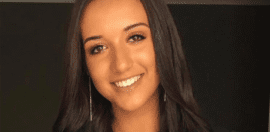Access and inclusion extends beyond the pandemic

21 October 2021 at 9:10 am
COVID-19 has brought with it a new wave of institutional flexibility. We need to hold onto that, and prioritise access as we exit the pandemic, writes Mia Boonen, who shares her experience of “crip time” in COVID-19 and the findings from YDAS’ COVID-19 Working Group.
In mid-2020, I woke up one morning and couldn’t get out of bed. I was struggling to breathe, and after a brief chat to the nurse-on-call, I had an ambulance at my door and a trip to the local hospital ahead of me.
I was smack-bang in the middle of my theatre degree, and one week out from the opening of a 12-hour long endurance-themed zoom show where we danced, played party games and stayed awake all night. In fear of “falling behind”, I emailed my director and she sent me a series of readings to do from my hospital bed. I borrowed a nurse’s phone charger and stayed awake all night handling the next week of admin work at my teaching job. This all came with the theory that “getting things done early” meant that when I got home from the hospital, I’d have a chance to rest.
It took a few months before I actually learnt that my disabled body required me to change my relationship with time. I had to be more flexible about the hours I work, I had to squeeze in both work and joy on the “good days” so that, importantly, I had time to rest when things were bad.
That’s crip time. Dr Alison Kafer is quoted saying that “crip time bends the clock to meet disabled bodies and minds”.
For example, when I get to work, I arrive at the same time as everybody else. However, my studio is on the third floor of the building and I can’t take the stairs which are, arguably, the fastest route. So instead, I am a few minutes late to the team meeting and I wait for the slowest lift in the world. Should I be penalised for that time? No. Should the meeting – its timing or location – change so that I can access it with more ease? Yes.
Adapting our relationship to time and space is imperative to the creation of a universally accessible society. And this can be made no more obvious than it has been throughout the pandemic.
As COVID-19 swept the world up – postponing, cancelling and meddling with our plans – it came with a new wave of institutional flexibility. My university relinquished its students from the rigidity of semester grades and suddenly, workplaces made it accessible to work from home. Accommodations and extensions became normal and disabled people were left wondering: where was all this adaptivity before?
That’s where the YDAS COVID-19 Working Group comes in. The Youth Disability Advocacy Service (YDAS) established a working group of disabled young people who ran focus groups, created art, met with stakeholders and reflected upon our experience of the pandemic. Holding fortnightly meetings across 2020 and 2021, the working group discussed the day-to-day life of lockdown, as well as our experiences getting vaccinated, and our observations about how the pandemic changed our lives at work and school. The meetings were a space of solidarity and, importantly, flexibility, and there was always room in our meetings for a short snack break and self care.
Following the sessions with focus groups and discussions in meetings, the COVID-19 Working Group created this report, which outlined the ways in which the roadmap to COVID-19 recovery could protect and support disabled young people. As Australia begins to open up, this report is more important than ever.
Disabled young people have been impacted across their entire lives, from access to support and mental health services, education, employment, to engagement with government, social inclusion and community. Deeper engagement with disabled young people could improve the efficacy of support services and build a more inclusive society.
One of the recommendations is to “ensure that access needs are always met online, no matter what the current COVID-19 restrictions are”. Many disabled young people have found that access to online classes, flexible hours and blended learning models have been incredibly helpful. The pandemic has highlighted the need for diversity and flexibility in the format of learning material, and the importance of including young voices in the implementation of any changes.
Moving forward, the recommendation to “ensure considerations and adjustments that were made during COVID-19 are continued into recovery and beyond” is paramount to ensuring we re-emerge from COVID a more inclusive society. We need to hold onto our flexibility, and we must prioritise access as we exit the pandemic.
I’ll leave you with my favourite quote from the report (which you should go read in full!):
“The collection of ambitious and creative ideas in this report is a testament to the strength and power that young people with disability have and deserve to be recognised for. Young people with disability have told you what you could do to make the world better, this is your chance to do it.”
This article is part of a monthly series, Youth Matters, a collaboration between Youth Affairs Council Victoria and Pro Bono Australia to inject the voices of young people into the social change sector.







